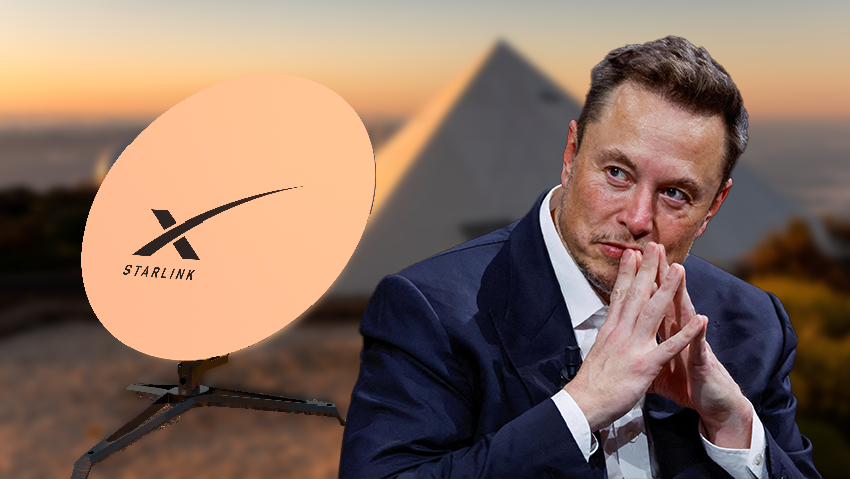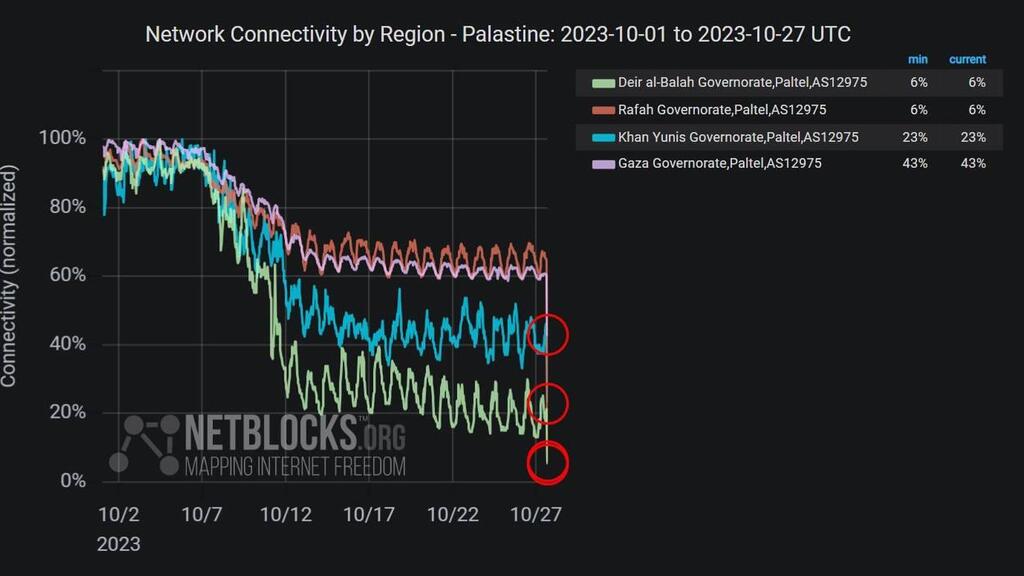Getting your Trinity Audio player ready...
Billionaire Elon Musk announced late Saturday that he will allow the United Nations and the recognized aid organizations in the Gaza Strip to connect to the Internet through the Starlink service , after the Internet in the Gaza Strip collapsed last night during the IDF's ground operations.
Read more:
"Starlink will provide connectivity to internationally recognized aid organizations in Gaza," Musk wrote in response to a post by Rep. Alexandria Ocasio Cortez, D- N.Y. , who was concerned about cutting off the Gaza Strip from the internet. In response to another post, Musk wrote that he would also provide an Internet connection to the United Nations.
2 View gallery


Elon Musk and a Starlink terminal
(Photo: Gonzalo Fuentes / Reuters, Mike Mareen / Shutterstock)
"Cutting off all communication to a population of 2.2 million is unacceptable. Journalists, medical professionals, humanitarian efforts, and innocents are all endangered. I do not know how such an act can be defended. The United States has historically denounced this practice," Ocasio Cortez wrote in the post on X (formerly Twitter) to which Musk responded.
In response to another user who urged him to connect Gaza to the Internet, Musk replied: "It is not clear who has authority regarding connections on the ground in Gaza, but we know that no terminal has asked to connect in this area."
Communications Minister Shlomo Karhi reacted angrily to Musk's statement. "Israel will use all the means at its disposal to fight this. Hamas will use it for terrorist activity. There is no doubt about it. We know it, and Musk knows it. Hamas is ISIS," he wrote in response.
"Musk can make this conditional on the release of our kidnapped babies, boys, girls, elderly people. Everyone," Karhi added. "Until then, the Ministry of Communications under my leadership will cut all ties with Starlink."
Sympathy for Iran
Musk's promise to operate Starlink in Gaza came hours after he posted a meme that echoes the narrative of Iran - one of the biggest supporters of Hamas - about American aggression toward the Islamic Republic. The meme, which shows a map of Iran and US bases in the surrounding countries, reads: "Iran wants war. Look how close they put their country to our military bases." In the post itself, Musk wrote "Oh, the Irany" ( a play on "Oh, the Irony").
The internet connection in the Gaza Strip collapsed yesterday during IDF ground operations. The Palestinian telecom company Paltel announced that the IDF attacks had "completely disrupted" both the wire and cellular internet. A graph published by the NetBlocks organization, which monitors disruptions in internet connection around the world, demonstrates how internet connectivity in the Gaza Strip has been decreasing since the start of the war, until it collapsed on Friday night.
The Starlink project of Musk's SpaceX company provides Internet connection through low-orbit satellites, and is intended for isolated and remote areas where Internet connection does not exist or is unstable. Last year, after the Russian invasion of Ukraine, during which the communications infrastructure in the country was severely damaged, Musk placed Starlink at the service of Kiev. Musk objected to Ukraine's reliance on Starlink for military purposes, and eventually responsibility for the internet service in the country was transferred to the Pentagon.
Following the start of the war with Hamas, efforts were made to bring Starlink to Israel as well. Although there were no disruptions in the Internet connection, about a week and a half ago the Ministry of Communications announced that "an activity is taking place to coordinate the Starlink company in Israel" and that the ministry is promoting the purchase of the company's terminals for the benefit of rabbis and heads of communities in the settlements along the conflict lines. Since the publication of the announcement, the Ministry has not informed of any progress In the talks and on Saturday night Karhi announced that Israel would sever ties with the company.



